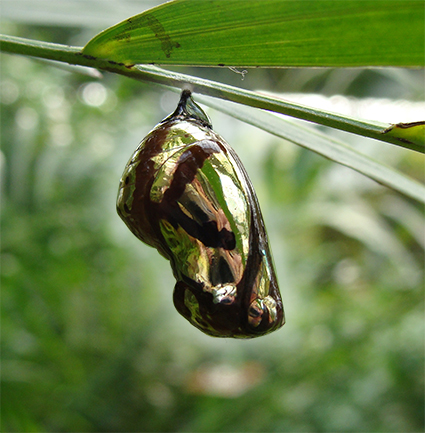If it seems hard to get your mind around what THEE is about you are not alone. This Taxonomy is a «Big New Idea». I had trouble grasping it for many, many years.

I just kept going: finding useful patterns and making useful distinctions in a state of unknowing. Now I am clearer. Mainly due to banging my head against reality, first trying this and then trying that.
You have no idea how many times I have drafted the sort of explanations provided in the public pages of this website.
It must relate to my bête noir, Change-RL3. As I noted in another blog, there are over 4 billion hits when you Google: "why people don't change".
If it's been hard for me to upturn conventional wisdom, then I realize that when other people try to get their mind around THEE, it is even tougher. After all, it is not their preoccupation, not their personal challenge. At least initially, THEE is regarded as «someone else's» model or «just another» big theory.
The initial and wholly natural way to start grasping anything new is to find comparisons with something that is familiar. It doesn't matter whether you properly understand that familiar item. Probably better if you don't. The goal is simply to pigeon-hole.
We all get a feeling of understanding by assimilating the new to the old. The alternative approach to something new is shocking: it means experiencing confusion, persisting, reflecting, concentrating and changing! This notion, that we learn by using our own experiences to understand and create knowledge that we call our own, is given the academic term: constructivism. I'll return to change in a moment.
In assimilating THEE to what is familiar, two popular paradigms are commonly suggested, almost as a reflex: Integral Theory of Ken Wilber, and Spiral Dynamics of Graves, which is usually associated with Don Beck. Both of these claim to be «theories of everything». (THEE certainly does not do that.)
You can read about the difference between Wilber's spiritual philosophy and my concrete Taxonomy in an earlier blog. So let's look at Spiral Dynamics now. It turns out to reside in a specific part of THEE. It is derived from the approaches to Interacting for Benefit, a framework that emerges from 2 (of 7) approaches to ethical choice: the Individualist (look after yourself) and the Communalist (look after your social context). These, when combined, determine Prosperity in Society.
Taxonomic logic demands that we investigate all other combinations of adjacent ethical approaches. The result is to suggest that there are 6 companion frameworks of great significance in social life. I have not done the necessary inquiry, but my initial speculations are that these could well illuminate matters like Leadership, Harmony, Security, and Liberty. I can well understand why Prosperity is so popular, but I would love to persuade someone knowledgeable to tackle these other psychosocial phenomena with or without me.
But is there an alternative to assimilation ("I understand all this—there is nothing new here") or rejection ("A quick look tells me that these ideas make no sense because they are so different to what I'm used to and what everyone believes")? Any alternative would mean readjusting your thoughts. You would have to actively mobilize some mental space. Also organize your time and attention. It is still necessary to maintain your bearings by having links to what you know about, but in this accommodation you alter yourself to grasp the new rather than alter/reject the new to suit yourself. Feynman was rather cynical in this regard: "scientists don't really understand a new theory, they just get used to it." Max Planck noted that "a new scientific truth does not triumph by convincing its opponents and making them see the light, but rather because its opponents eventually die". In other words, while there's death there's hope. And this is the behavior of scientists who are expected to seek the truth!
But the rest of us can change what we think. We can learn something new. Of course, we can. Take the concept of «psychosocial reality». The notion of using our experiences to create our personal and social realities is strange, but not totally strange. Everyone is used to having dreams. Everyone has experiences of becoming immersed in a film. Living your life is not much different from that. You know that you determine what you say, what you do, what you investigate, what you think about, what you read. The main problem is that this carries a degree of responsibility, and it demands that you accept your own freedom and creativity. Don't want that? No problem: lots of scientists and philosophers are around to tell you that you have no free will, that your very idea of existing is an illusion, and that responsibility is about decisions in courts of law.
The surprising thing about change is that children do it all the time. As adults, we tend to think that we know better. Or rather, we develop a set of ideas, reference points that we have decided are useful and suit our lives, and then we dearly want to stick to them. It's an identity thing. (I will be posting the ways we establish our personal uniqueness in a few months.) I feel increasingly confident in my speculations over the past couple of years that change, identity and reality are very very closely linked taxonomically.
As for THEE, if you think it has any value, then explain it to friends. It will be a good exercise. Let me know how you get on: new better or even different explanations can always be posted.
WK
About
Warren Kinston